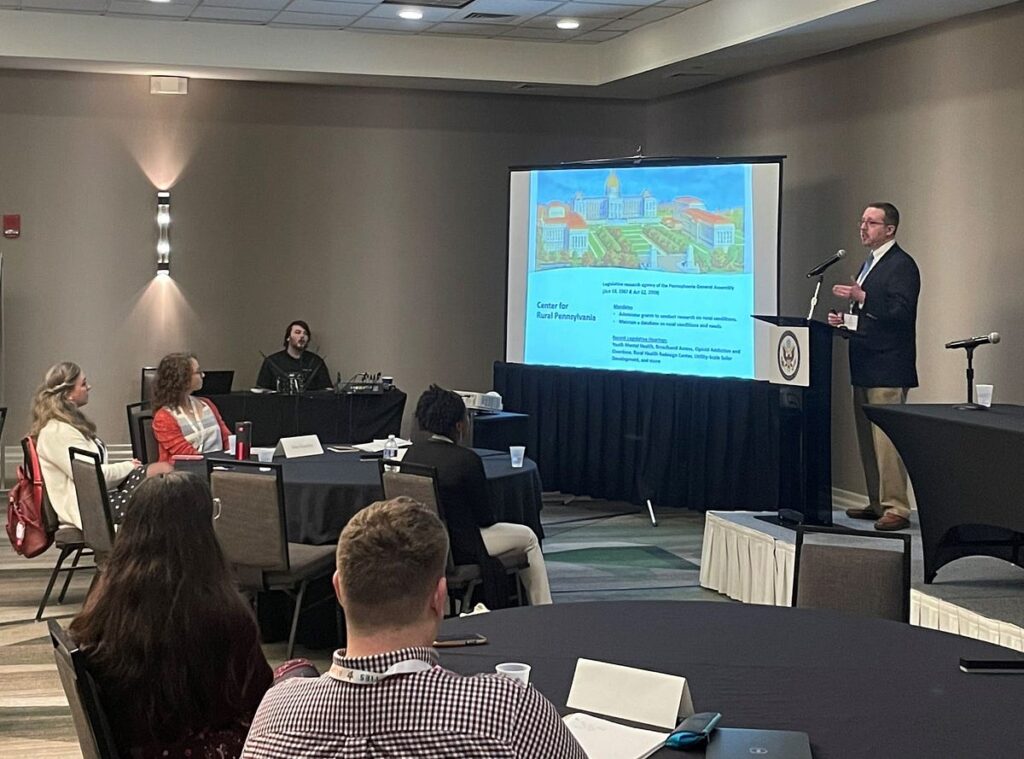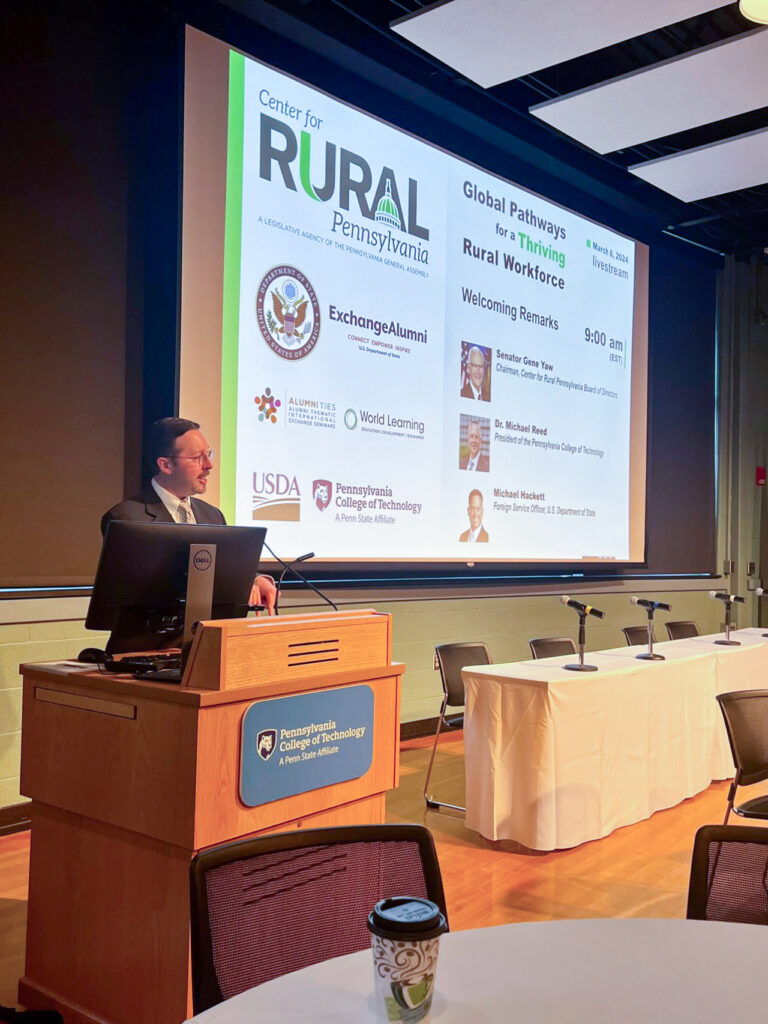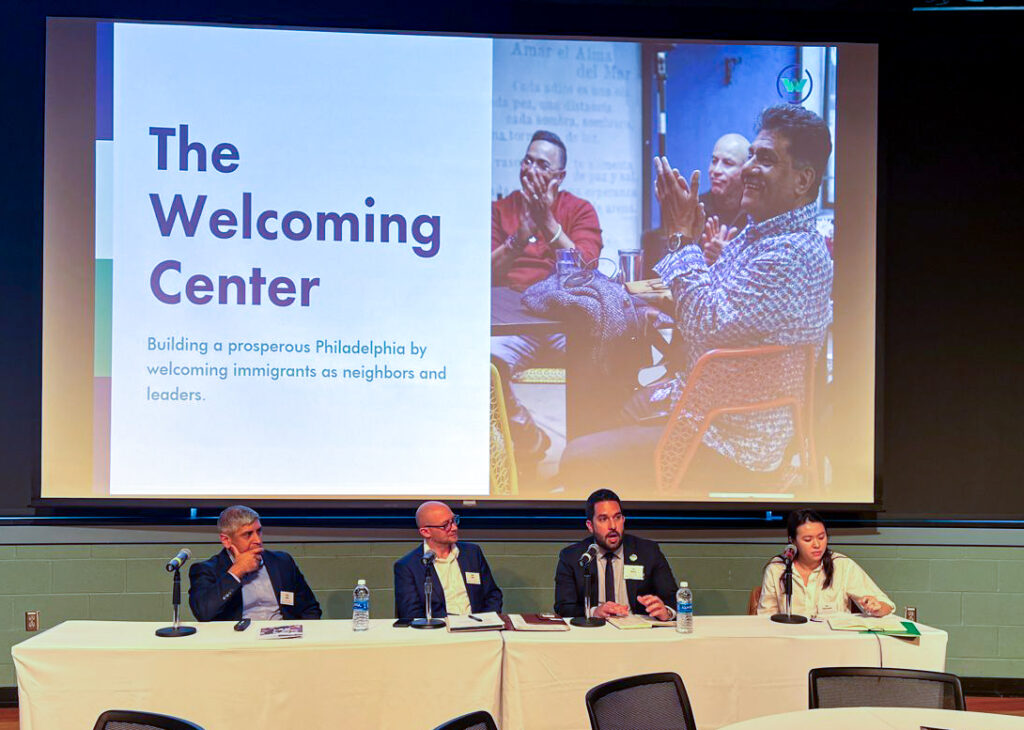-
What We Do
- WHERE WE WORK
-
About Us
 Welcome Message from Carol Jenkins
Welcome Message from Carol JenkinsFor more than 90 years, World Learning has equipped individuals and institutions to address the world’s most pressing problems. We believe that, working together with our partners, we can change this world for the better.
On my travels, I’ve had the opportunity to meet with many of those who have joined us in this mission. In Baghdad, we’ve trained more than 2,300 Iraqi youth who are already giving back at home. In London, our partners in the TAAP Initiative strongly believe that we are all responsible to practice inclusion. And in Vermont, our Experiment in International Living and School for International Training participants prove every day that they have the tools and the determination to change the world.
Please join us in our pursuit of a more peaceful and just world.
- Get Involved
Media Center > Story
Alumni TIES participant uses small grant to showcase the value of international residents in rural U.S. communities
April 11, 2024
By Eric House
One recent Alumni Thematic International Exchange Seminar (Alumni TIES) participant is making a difference by educating local community leaders on how to best engage with and empower those who relocate to rural communities in the United States from international locations.
After participating in the February 2023 Alumni TIES seminar on “Rural Engagement in Global Affairs” in Birmingham, Alabama, Dr. Kyle Kopko, executive director of The Center for Rural Pennsylvania, applied for funding through the program to host the symposium “Global Pathways for a Thriving Rural Workforce” held on March 8 at the Pennsylvania College of Technology.

Kopko is also trained in political science and law, serving as a tenured professor and associate dean at Elizabethtown College. To date, much of Kopko’s work on rural policy issues has focused solely on Pennsylvania’s rural communities. His Alumni TIES grant allowed him to expand the scope of his work.
Many rural communities across the U.S. have experienced population decline over the years. This issue has affected a wide range of public policy issues, including economic development and workforce availability.
In response, some rural communities have sought to attract international residents to grow their populations and strengthen their workforces. The goal of the one-day symposium was to explore this phenomenon in more detail by sharing best practices and lessons learned and identifying policy considerations for any communities that may benefit from international residents.

“Our goal was to provide useful information for rural community leaders,” Kopko said, who coordinated the event with several of his colleagues. “We hoped to provide basic information on the visa process, the types of support networks that are most effective to serve international residents and provide a forum for attendees to make professional connections in support of their work in rural communities.”
The symposium featured more than 30 speakers across a variety of panels on international workers within healthcare, education, agriculture, anchor institutions, and workforce development programs.
The symposium’s discussions all centered on the likelihood that refugees will constitute a large portion of rural populations in the future. As such, they will be an increasingly important part of the U.S. workforce and its communities.
“Rural communities across the United States are shrinking and growing grayer, but there is still tremendous potential for growth given the number of available jobs in rural communities like in healthcare, agriculture, and manufacturing,” said Tim Rivera, World Learning’s senior advisor for innovation and a speaker on the panel “Resettlement and Integration Perspectives.”
World Learning and School for International Training (SIT) have worked to revitalize southeastern Vermont’s economy through a refugee resettlement program launched in January 2022. Together with the Brattleboro Development Credit Corporation (BDCC) and the Ethiopian Community Development Council, Vermont has welcomed approximately 300 refugees who now represent around $3.7 million in annual taxable wages, much of which is going back into the local economy.
Rivera was joined on the panel by Alex Beck, the welcoming communities’ manager at BDCC and an SIT alum. They shared recommendations for other rural communities that would like to explore similar strategies and opportunities for refugee resettlement as a workforce attraction and revitalization strategy.

“Thanks to the generous support of the State Department, Alumni TIES, and World Learning, my colleagues and I are able to explore an important rural policy issue with implications for rural communities across the United States,” Kopko said. “I am incredibly grateful for the opportunity to work collaboratively to provide information and resources to our rural stakeholders.”
Alumni TIES is sponsored by the U.S. Department of State with funding provided by the U.S. Government and supported in its implementation by World Learning, in partnership with the Office of Alumni Affairs of the Bureau of Educational and Cultural Affairs (ECA). To learn more about the Alumni TIES program, please visit the website: https://www.alumnities.org/.





